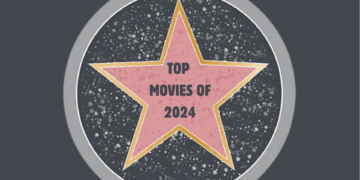Human trafficking is one of the most profitable illegal enterprises globally — and officials are saying that the crime is “on the rise” in the state of Mississippi.
According to the International Labor Organization, the business of human trafficking generates an estimated $150 billion in illegal profits every year, and there is no estimate as to how much of that is produced in Mississippi.
The state Attorney General’s office, the Mississippi Bureau of Investigation and other law enforcement agencies operated a week-long operation in December “to locate individuals attempting to lure children to meet for sex or asking them to produce child pornography.” The operation resulted in at least three arrests and one sentencing.
“Unfortunately, child exploitation cases are on the rise as predators seek to exploit the increasing number of children and teenagers using the internet unsupervised,” Fitch said in a press release. “I am committed to putting an end to the victimization of our most vulnerable through child exploitation and pornography.”
The month before, six men were arrested in Oxford in connection with procuring prostitution as part of a joint undercover human trafficking investigation, and in October, a similar operation in Southaven led to the arrest of seven people in DeSoto County.
The most recent data on trafficking in Mississippi shows that 148 cases were reported in the state in 2019, and Fitch said that human trafficking in Mississippi is more prevalent than ever.
“There is a common misconception that because Mississippi is a smaller, more conservative state, an issue like human trafficking isn’t as relevant. That could not be further from the truth,” Fitch said.
Ashlee Lucas, statewide human trafficking coordinator for the MBI, said there were 235 human trafficking reports in Mississippi between July 1, 2019 and August 31, 2020. Sex trafficking accounted for 226 of the reports, and 124 of those were reported to be trafficked by a family member.
“It’s super difficult to look at these cases on a day to day basis, and to look at these reports and realize how many children in our state — they’re not safe,” Lucas said. “Our communities are not doing a good job at recognizing trafficking for what it is.”
Lucas said human trafficking is frequent in Mississippi because of its prevalency across the country. She also said her experience has shown her that no community is immune to the problem of human trafficking.
“There are communities listed in reports that are so small that I’ve never even heard of them, and I’ve been in Mississippi all my life. It’s across the state,” Lucas said.
According to Fitch, Mississippi’s port access on the Gulf Coast and major interstates make the state an prime location for traffickers to move victims.
“Traffickers use the ports and the roads to take victims to multiple large airports surrounding Mississippi or to the state’s connecting stops for the Amtrak. This makes our state an ideal method of transportation to move victims,” Fitch said.
Jeff McCutchen, Chief of the Oxford Police Department, compared human traffickers’ transportation strategies to those of the narcotics trade.
“There’s going to be hubs of where the product comes in, and then there’s areas where it’s dispersed out,” McCutchen said. “It’s the same thing with human trafficking.”
As first responders, local law enforcement agencies play a vital role in identifying and responding to human trafficking cases. McCutchen said local law enforcement is working to change its mindset surrounding human trafficking and adapting the way victims are treated.
“We arrested six males (on Nov. 13). If you go back — probably five years and before that — we’re arresting women, thinking that we’re going to arrest them out of (prostitution) and that they won’t go back because they got caught,” McCutchen said. “That found out to be very, very bad information and tactics.”
Sandy Middleton, executive director of Mississippi’s Center for Violence Prevention, said changing the practices of local law enforcement was the first step in Mississippi’s fight against human trafficking. She said local law enforcement agencies have largely put the blame on trafficking victims in the past, neglecting to hold buyers and traffickers responsible for their crimes and continuing the vicious cycle.
“The buyers went home, the traffickers got rich and the victims went to jail,” Middleton said.
Rather than arresting victims, McCutchen said the goal now is to set victims up with psychological counselors and medical teams in order to help them.
“If we’re not careful, we feed into exactly what their captors are telling them, ‘Law enforcement doesn’t care. All they want to do is lock you up, and you’re going to have to come back to me because I’m the one that’s going to bond you out of jail,'” McCutchen said.
Middleton said the Center for Violence Prevention was involved with Oxford’s most recent human trafficking operation, enabling them to immediately engage with the victim, offer them services and try to begin an appropriate healing process.
“The ability to come alongside them and offer them victim services, coupled with not charging them and charging offenders — it creates a different environment for a victim,” Middleton said. “They can feel safe to stand up, because many of them have never had the opportunity to be supported by the system.”
In 2017, the Center for Violence Prevention opened The Tower, the state’s only shelter-in program for adult victims of human trafficking. The program assists individuals for up to two years, providing them with long-term support and giving them a chance to take their time to heal.
“It’s just remarkable how resilient they are and how courageous they are to say the things that have happened to them and to move through it to the other side,” Middleton said. “One of the things that we do when (the victims) get to different places in their recovery (is that) we hold celebrations for them because it is celebratory. They live through some unimaginable horrors.”
Fitch said that one of her highest priorities is putting an end to human trafficking in Mississippi and helping its victims find a way back into society without shame. However, she said in order to stop human trafficking, the entire community has to work together.
According to McCutchen, one local woman identified a missing child who was being trafficked while she was at the nail salon. The woman said that the situation “just didn’t look right,” and that the man the child was with did not seem to be related to her.
“She’s getting her nails done, and on her free hand, looks up the missing exploited children’s website and said, ‘That’s that girl,'” McCutchen said. “So it’s everybody, all of us, that take part in it.”
If you suspect someone is being trafficked, you can call the Human Trafficking Hotline at 1-888-373-788 or text 233733. If you are a victim of human trafficking and need assistance, contact The Center for Violence Prevention at 1-800-266-4198 for victim’s services.



























